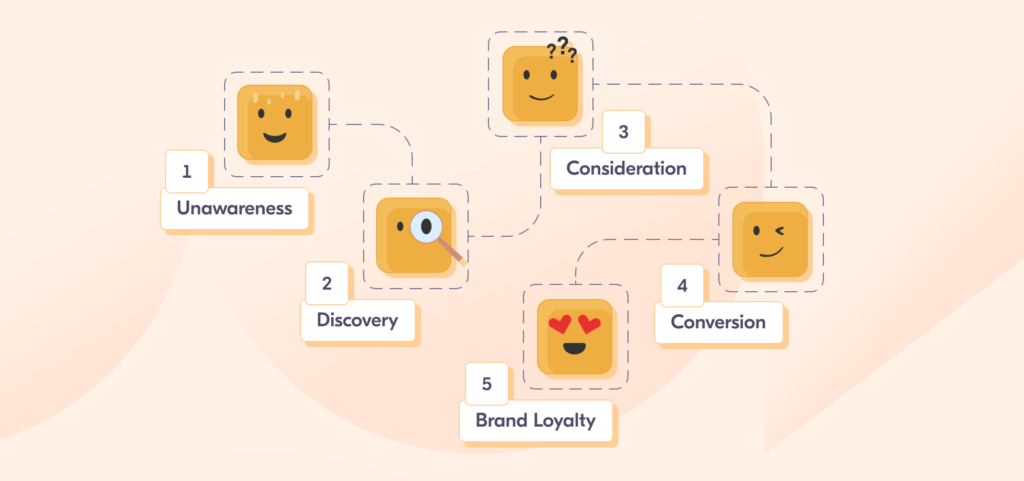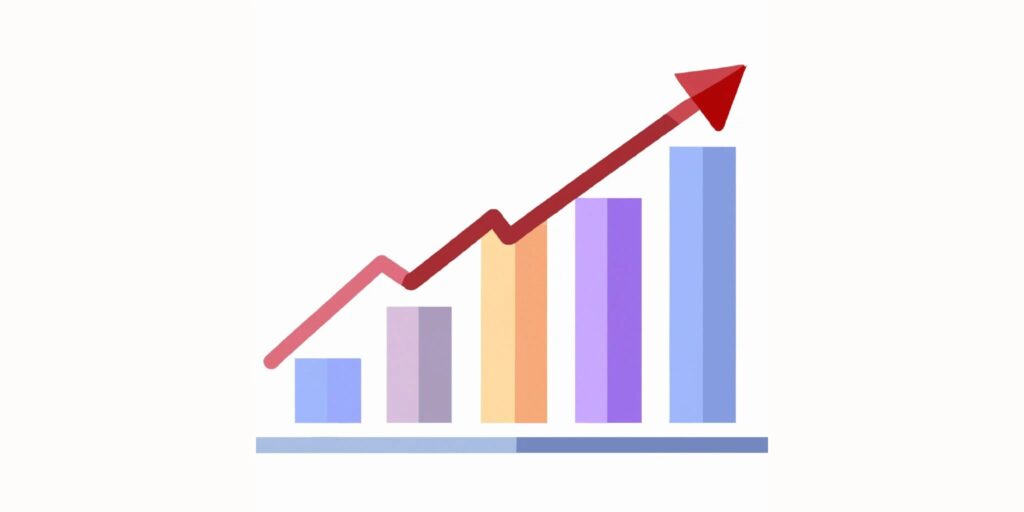In today’s digital age, social media has emerged as a pivotal tool for business growth and development. With billions of active users worldwide, platforms like Facebook, Instagram, Twitter, LinkedIn, and TikTok offer unprecedented opportunities for businesses to connect with potential customers, enhance brand awareness, and drive sales. Understanding the power of social media and strategically leveraging it can transform a business’s growth trajectory. This article delves into the various ways social media can fuel business growth and provides insights on effectively utilizing these platforms.
1. Enhanced Brand Awareness
One of the most significant advantages of social media is its ability to increase brand visibility and awareness. Businesses can reach a vast audience by consistently posting engaging content. Each social media platform has its unique audience and content style. For instance, Instagram and Pinterest are highly visual, making them perfect for businesses in fashion, food, and design. LinkedIn, on the other hand, caters to professionals and is ideal for B2B marketing.

Creating a cohesive brand identity across platforms helps establish a recognizable presence. Engaging visuals, consistent color schemes, logos, and taglines all contribute to a memorable brand. By regularly interacting with followers, sharing valuable content, and utilizing hashtags effectively, businesses can significantly enhance their brand awareness.
2. Direct Engagement with Customers
Social media provides a unique opportunity for businesses to engage directly with their customers. This direct line of communication allows companies to build relationships, gather feedback, and address customer queries or concerns promptly. Platforms like Twitter and Facebook enable real-time interactions, fostering a sense of community and loyalty among followers.

Interactive content, such as polls, Q&A sessions, and live videos, can further enhance engagement. For example, Instagram Stories and Facebook Live allow businesses to connect with their audience in an authentic and spontaneous manner. This real-time engagement can humanize a brand, making it more relatable and trustworthy.
3. Targeted Advertising
Social media platforms offer sophisticated advertising tools that enable businesses to target specific demographics, interests, and behaviors. This level of precision ensures that marketing efforts are directed towards the most relevant audience, maximizing the return on investment (ROI).

Facebook Ads, for instance, allow businesses to create custom audiences based on various criteria, such as age, location, and interests. Instagram and LinkedIn also offer robust advertising options tailored to their user base. By utilizing these tools, businesses can deliver personalized content to potential customers, increasing the likelihood of conversion.
4. Cost-Effective Marketing
Compared to traditional advertising methods, social media marketing is highly cost-effective. Creating an account and posting content is free on most platforms, and even paid advertising options are generally more affordable than print, radio, or TV ads. This makes social media an attractive option for small businesses with limited marketing budgets.

Moreover, the ability to track and measure the performance of social media campaigns in real-time allows businesses to optimize their strategies for better results. Metrics such as engagement rates, click-through rates, and conversion rates provide valuable insights into what works and what doesn’t, enabling continuous improvement.
5. Increased Website Traffic and SEO
Social media can drive significant traffic to a business’s website. By including links to their website in social media posts, businesses can direct followers to their online store, blog, or contact page. This not only increases the potential for sales but also improves the site’s search engine ranking.

Search engines like Google consider social signals, such as shares and likes, as indicators of a website’s credibility and relevance. Therefore, an active social media presence can positively impact search engine optimization (SEO). Regularly sharing high-quality content that resonates with the audience encourages social sharing, which in turn boosts the website’s visibility and ranking.
6. Market Insights and Competitive Analysis
Social media platforms are treasure troves of data. Businesses can gain valuable insights into customer preferences, behaviors, and trends by analyzing this data. Tools like Facebook Insights, Twitter Analytics, and Instagram Insights provide detailed information on audience demographics, engagement metrics, and content performance.

In addition to understanding their audience, businesses can also monitor competitors’ activities on social media. Analyzing competitors’ content, engagement strategies, and customer interactions can reveal opportunities for differentiation and improvement. This competitive analysis can inform a business’s social media strategy, helping it stay ahead of the curve.
7. Building a Community
Building a loyal community around a brand is one of the most powerful aspects of social media. By creating content that resonates with their audience and encouraging interaction, businesses can foster a sense of belonging among their followers. This community becomes a valuable asset, as loyal customers are more likely to advocate for the brand, leave positive reviews, and refer others.

Facebook Groups, for example, can be used to create niche communities where members can share experiences, ask questions, and provide feedback. Similarly, Twitter Chats and LinkedIn Groups offer platforms for engaging discussions and networking. These communities not only enhance customer loyalty but also provide a direct channel for gathering insights and fostering brand advocacy.
8. Leveraging Influencer Marketing
Influencer marketing has become a significant aspect of social media strategy. Collaborating with influencers who have a substantial following can help businesses reach a broader audience and build credibility. Influencers can authentically promote products or services, often leading to higher engagement and conversion rates.

When choosing influencers to collaborate with, it’s essential to consider their relevance to the brand, the engagement rate of their followers, and the authenticity of their content. Micro-influencers, with smaller but highly engaged audiences, can also be effective partners, particularly for niche markets.
9. Crisis Management
Social media plays a crucial role in managing public relations and handling crises. In the event of negative publicity or a crisis, social media provides a platform for businesses to address issues transparently and promptly. Timely and appropriate responses can mitigate damage to the brand’s reputation and demonstrate a commitment to customer satisfaction.
Having a crisis management plan in place, including guidelines for social media communication, can help businesses navigate challenging situations effectively. Regular monitoring of social media channels and sentiment analysis can also help identify potential issues before they escalate.
10. Showcasing Corporate Social Responsibility
Consumers today are increasingly concerned about the social and environmental impact of the brands they support. Social media offers a platform for businesses to showcase their corporate social responsibility (CSR) initiatives and highlight their commitment to sustainability, community engagement, and ethical practices.
By sharing stories, photos, and videos of their CSR activities, businesses can build a positive brand image and connect with socially conscious consumers. This transparency and commitment to social good can enhance brand loyalty and attract a broader customer base.
Conclusion
The power of social media for business growth cannot be overstated. From enhancing brand awareness and engaging directly with customers to driving sales and gaining valuable insights, social media offers numerous benefits that can propel a business forward. By strategically leveraging these platforms and continuously adapting to the ever-evolving digital landscape, businesses can harness the full potential of social media to achieve sustainable growth and success.

The Golden Circle of Content Marketing
Views: 131 Content marketing has become an indispensable strategy for businesses aiming to connect with their target audience, build brand loyalty, and drive conversions. Yet,

Why Every Realtor Needs a Digital Marketing Plan for Real Estate
Views: 138 The real estate industry is undergoing a significant transformation, driven by digital marketing plan and changing consumer behavior. Gone are the days when

Effective Use of Hashtags to Increase Your Social Media Reach
Views: 163 In today’s digital age, social media has become a powerful tool for individuals and businesses alike. With billions of users actively engaging on

The Importance of Authenticity in Social Media Marketing
Views: 195 In today’s digital age, social media has become a crucial platform for brands and businesses to connect with their audience. However, with the

The Impact of Visuals in Social Media Marketing
Views: 176 In the digital age, social media marketing has emerged as one of the most powerful tools for brands to connect with their audience.

The Role of AI in Social Media Content Creation
Views: 198 In today’s digital landscape, social media has become an essential platform for brands, businesses, and individuals to connect with their audiences. As the




